Choosing the right protein powder can be tricky.
Should you go with whey? Casein? Soy? Egg? Rice? Hemp? Pea? Something else altogether?
Well, if you’re like me, you want a protein powder that meets the following criteria:
- Good macronutrient profile (high in protein and low in carbs and fats)
- Minimal amount of artificial ingredients
- Tastes good
- Mixes well
- Is reasonably priced
That narrows the field down but still leaves quite a few options. And in this article, we’ll look at each and help you find what will best fit your body and needs.
Let’s start with addressing a common lie told to women about protein powders and weight loss.
- The Best Protein Powder for Weight Loss
- The Scoop on Whey Protein
- The Scoop on Casein Protein
- The Scoop on Egg Protein
- The Scoop on Soy Protein
- The Scoop on Other Vegan Proteins
- The Bottom Line on the Best Protein Powder for Women
- What are your thoughts on the best protein powders for women? Have anything else to share? Let me know in the comments below!
Table of Contents
The Best Protein Powder for Weight Loss
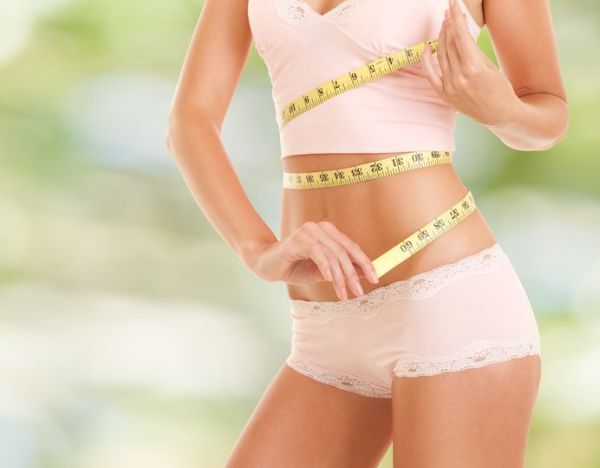
Here’s a truism of health and fitness marketing:
If you want to dramatically increase sales of any product or service, just tell people it’s going to help them lose weight.
Hence weight loss pills, weight loss pre-workout drinks, weight loss protein bars, and weight loss protein powder.
The reality, though, is there is no such thing as a “weight loss food.”
That said, certain foods are more conducive to weight loss than others.
The reason why some foods are “better” for weight loss than others boils down to the amount of calories they contain and how those calories break down into protein, carbohydrate, and fat.
Generally speaking, the best foods for weight loss are those that provide an abundance of micronutrients and are filling while also being relatively light in calories and in dietary fat and added sugar in particular.
When you focus on eating these types of foods, you’re much less likely to struggle with hunger issues and overeat.
For example, my favorite “weight loss foods” are…
- Low-fat varieties of protein like lean types of meat (chicken, lean beef, fish, and so forth), low-fat dairy products, egg whites, and even grains and vegetables. While protein powder is convenient, it can leave you hungry if you have satiety issues.
- Whole grains like wheat, brown rice, oats, and barley.
- Vegetables like green beans, carrots, broccoli, and artichoke.
- Legumes like green peas and beans.
- Tubers like white potato, which is incredibly satiating, and sweet potato.
- As you can see, a bunch of high-fiber, unprocessed foods that taste great, provide your body with plenty of micronutrients, and keep you full.
The foods you want to avoid when dieting to lose weight are those that are very calorie dense and high in dietary fat and added sugar, but which aren’t all that filling.
Highly processed junk food like chips, candy, cookies, and other “goodies” and caloric beverages fit this bill, of course, but there are quite a few healthy foods that do as well.
For instance, I love nuts, oils, and butter, but have to limit my intake of them while dieting because they pack a ton of calories and dietary fat without doing much of anything to fill me up. The same goes for foods like dried fruit, chocolate, avocado, and whole-fat dairy–all foods I love, but that I avoid while dieting.
Now, when we’re talking protein powders, the powders most suitable for weight loss would be those that are as close to pure protein as you can get.
As far as I’m concerned, any carbohydrate and fat in a protein powder is just “wasted” calories that I’d rather be eating.
In fact, drinking calories is generally an awful idea when you’re dieting to lose fat.
The major problem with caloric beverages, ranging from soda to sports and energy drinks to fruit juices, is they don’t trigger satiety like food.
You can drink 1,000 calories and be hungry an hour later, whereas eating 1,000 calories of food, including a good portion of protein and fiber, will probably keep you full for 5 to 6 hours.
Here’s a quote from researchers from Purdue University, who investigated the influence of meal timing and food form on daily energy intake:
“Based on the appetitive findings, consumption of an energy-yielding beverage either with a meal or as a snack poses a greater risk for promoting positive energy than macronutrient-matched semisolid or solid foods consumed at these times.”
That is, people who drink calories are much more likely to overeat than those who don’t. This is why research shows a clear association between greater intake of sugar-sweetened beverages and weight gain, in both adults and children.
Alright, let’s now take a look at the most popular types of protein powders on the market, starting with whey protein.
The Scoop on Whey Protein
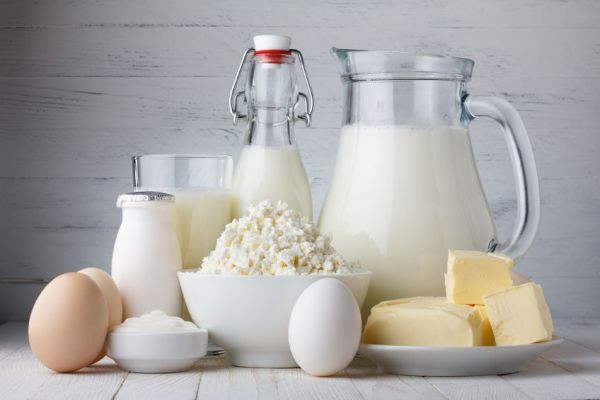
Whey protein is by far the most popular type of protein supplement out there. You get a lot of protein per dollar spent, it tastes good, and its amino acid profile is particularly suited to muscle building (more on that in a second).
What is it, though?
Whey is a semi-clear, liquid byproduct of cheese production. After curdling and straining milk, whey is left over.
It used to be thrown away as waste, but it was discovered that it’s a complete protein and that it’s abundant in an amino acid known as leucine. Leucine is an essential amino acid that plays a key role in initiating protein synthesis.
When the world of sports nutrition caught on to this research, the whey protein supplement was born.
Whey protein can be taken anytime, but it’s particularly effective as a post-workout source of protein because it’s rapidly digested, which causes a dramatic spike in amino acids in the blood (especially in leucine). This, in turn, may stimulate more immediate muscle growth than slower-burning proteins.
So, whey is an all-around good choice for protein powder for men and women.
I should mention, however, that even if you’re not lactose intolerant, you can be allergic to the actual proteins found in cow milk. This is why some people don’t do well with highly refined forms of whey, such as whey isolate or whey hydrolysate, which have virtually all lactose removed.
If whey bothers your stomach, try a non-dairy alternative like egg protein or a rice and pea protein blend, which we’ll talk about soon, and you’ll be fine.
The Scoop on Casein Protein
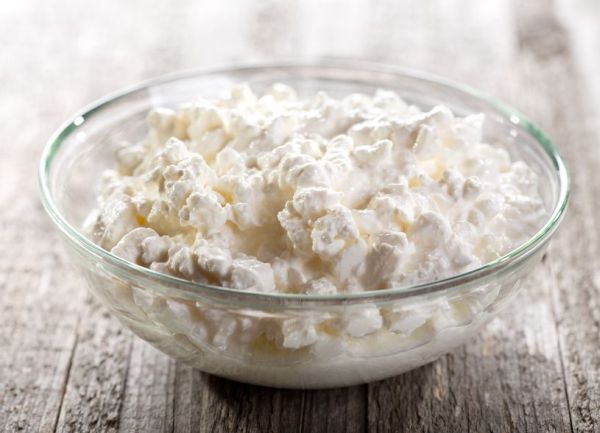
Like whey protein, casein protein supplements are very popular and are also a protein found in milk. The curds that form as milk coagulates are casein.
Casein protein is digested slower than whey, causing a smaller spike in amino acids in the blood, but a steadier release over the course of several hours.
There’s an ongoing debate about whether supplementing with whey is better than casein for building muscle or vice versa, but here’s what most reputable experts agree on:
- Due to its rapid digestion and abundance of leucine, a 30-40 gram serving of whey is probably your best choice for post-workout nutrition.
- Due to its slow release of amino acids, casein is a great all-around protein supplement. While it may or may not be as optimal as whey for post-workout protein (the jury is still out on this), there is a growing body of evidence indicating that, as far as protein powders go, a slow-burning protein is the best overall choice for building muscle.
- Casein is a good protein to have before you go to bed, which can help with muscle recovery.
I’ve always used whey protein in my post-workout meal and preferred a scoop or two of egg protein later in the day, but with egg protein prices out the roof, I’m now just eating low-fat cottage cheese or Greek yogurt instead.
The Scoop on Egg Protein
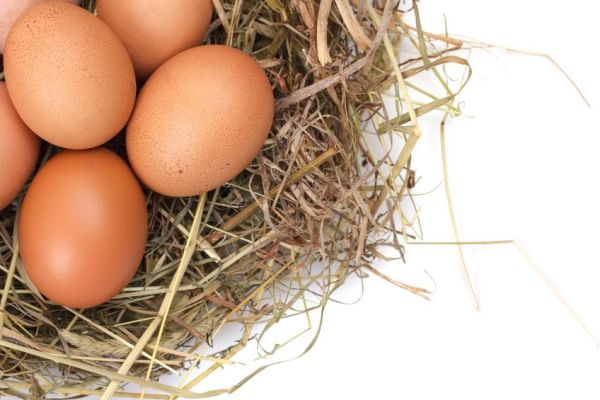
Many people don’t even know that you can buy egg protein in a powder form. Well, you can and it’s a great source of protein.
Egg protein has three primary benefits:
- It has a high “biological value.“
This is a measurement of how efficiently your body can actually utilize various forms of protein, and egg’s score varies based on the research, but is always at the top of the list. According to animal research, egg protein is similar to whey in its ability to stimulate muscle growth.
- Egg protein is digested very slowly (even slower than casein).
As you know, this means it results in a longer release of amino acids into the blood, which may be conducive to better overall muscle growth.
- Egg protein has little-to-no fat and carbohydrate.
Egg protein powder is made from egg white so any fat or carbohydrate would be added for taste and texture.
The bottom line is egg protein is just a great all-around choice.
As I mentioned earlier, it has long been my preferred choice for all protein supplementation outside of my post-workout meal but prices have been out the roof for the last six months or so. Once they come back down I’ll be including it in my regimen again.
The Scoop on Soy Protein
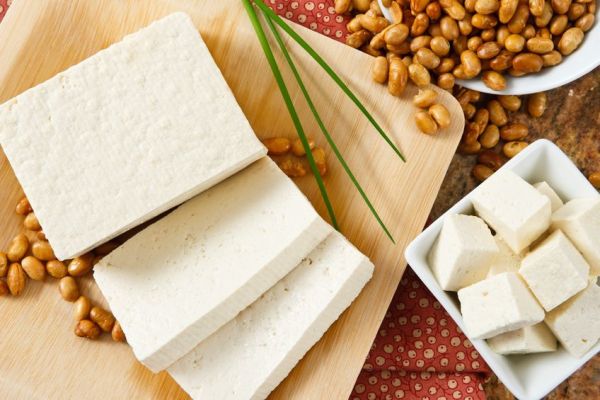
Soy protein is a mixed bag.
While research has shown it’s an all-around effective source of protein for building muscle, it’s also a source of ongoing controversy, and especially for men.
According to some research, regular intake of soy foods has feminizing effects in men due to estrogen-like molecules found in soybeans called isoflavones.
For instance, a study conducted by scientists at Harvard University analyzed the semen of 99 men, and compared it against their soy and isoflavone intake during the 3 previous months.
What they found is that both isoflavone and soy intake were associated with a reduction in sperm count. Men in the highest intake category of soy foods had, on average, 41 million sperm/ml less than men who didn’t eat soy foods.
On the other hand, a study conducted by researchers at the University of Guelph had 32 men eat low or high levels of isoflavones from soy protein for 57 days, and found that it didn’t affect semen quality.
Furthermore, literature reviews like those conducted by Loma Linda University and St. Catherine University suggest that neither soy foods nor isoflavones alter male hormone levels.
What gives, then?
Well, there isn’t a simple answer just yet but one promising line of research shows that soy’s effects in men can vary depending on the presence or absence of certain intestinal bacteria.
These bacteria, which are present in 30-50% of people, metabolize an isoflavone in soy called daidzein into an estrogen-like hormone called equol.
In a study conducted by scientists at Peking University, researchers found that when equol-producing men ate high amounts of soy food for 3 days, their testosterone levels dropped and estrogen levels rose. These effects were not seen in women, regardless of equol production or lack thereof.
Related to this is a study conducted by researchers at Sungkyunkwan University, which found that in a high-estrogen environment, isoflavones suppressed estrogen production, and in a low-estrogen environment, they increased estrogen production.
Now, in the case of women, research shows that soy is less likely to negatively affect hormones.
There are other things to consider, however.
Studies show that soy protein contains substances that inhibit the digestion of protein molecules and the absorption of other nutrients, as well as several known allergens.
While there is evidence that soy might have special benefits for women such as reducing the risk of heart disease and breast cancer, other studies cast doubt on these findings. And to the contrary, soy can even stimulate the growth of cancer cells.
The bottom line is if you want to supplement with a protein powder several times per day, I recommend you go with something other than soy.
The Scoop on Other Vegan Proteins
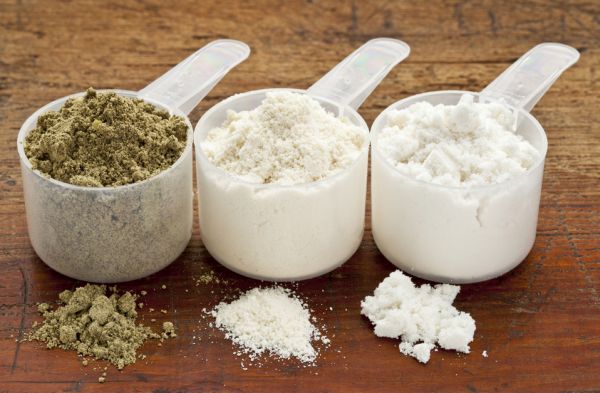
Non-soy sources of vegan protein such as rice, hemp, and pea protein are often demonized as being “incomplete” and inferior sources of protein.
That is, some “experts” claim that these plant proteins are missing essential amino acids that your body needs and thus must be combined in special ways to form “complete” proteins that your body can use to build muscle and repair tissues.
Well, this myth and the faulty research that spawned it was thoroughly debunked years ago by scientists at MIT but it still lingers.
The bottom line is this: all protein found in plants and vegetables is “complete.”
What is true, however, is that some forms of vegan protein are lower in certain amino acids than others, and some are better absorbed by the body, making certain sources smarter choices than others.
Three of the better, and more popular, types of vegan protein powders are rice, hemp, and pea protein. Here’s how they stack up:
Rice protein is a great choice.
It has a high biological value–around 80% (similar to beef)–and tastes great. In terms of specific products, I really like SunWarrior’s rice protein.
Pea protein is equally good.
Its biological value is about as good as rice’s and it has a high amount of leucine, which is important for maximizing muscle growth. In terms of brands, you can’t go wrong with NOW Foods’ pea protein.
It’s also worth noting that using a combination of rice and pea protein works especially well, as their combined amino acid profile is similar to whey protein’s. That’s why this mixture is often called the “vegan’s whey protein.”
Hemp protein is the poorest choice of the three.
Hemp has a great micronutrient profile but it’s only about 30-50% protein by weight whereas other options discussed in this article are 90-100%. And as I mentioned earlier, drinking more calories than you need to is generally a bad idea.
Furthermore, the protein in hemp isn’t absorbed nearly as well as rice or pea protein, let alone animal products like whey, casein, or egg protein.
The reality is hemp should be viewed more as a whole food, and not as pure protein supplement.
The Bottom Line on the Best Protein Powder for Women
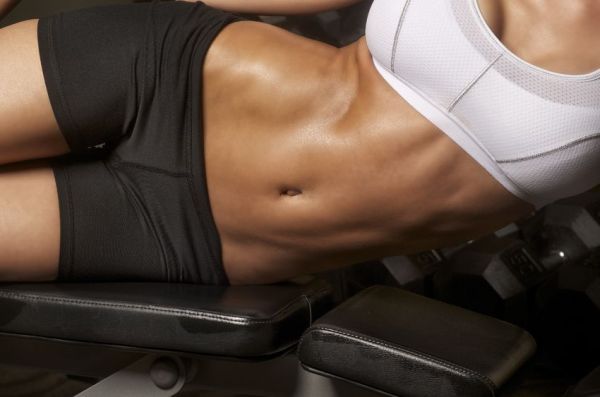
You now know everything you need to make good, informed choices about what protein powder will be best for you.
Here’s a recap:
- No one protein powder is unequivocally better for weight loss than another but the less carbohydrate and fat in the powder, the better.
- Whey protein is particularly good for having post-workout.
- Whey, casein, and egg are good for general supplementation, with casein and egg possibly being better for long-term muscle gains.
- A slow-digesting protein like egg or casein is good for having before you go to bed. Food works well for this as well (eggs, low-fat cottage cheese, and Greek yogurt are my favorites choices.)
- It’s probably a good idea to skip soy protein and go with something else instead.
- A blend of rice and pea protein is a great option for plant-based protein.
As I said earlier, I found what works great for me is whey protein after my workouts and egg protein for all other supplementation needs (hopefully the prices come back to Earth!). With a bit of experimentation, you can find what works best for you as well.
What are your thoughts on the best protein powders for women? Have anything else to share? Let me know in the comments below!
+ Scientific References
- House JD, Neufeld J, Leson G. Evaluating the quality of protein from hemp seed (Cannabis sativa L.) products through the use of the protein digestibility-corrected amino acid score method. J Agric Food Chem. 2010;58(22):11801-11807. doi:10.1021/jf102636b
- Mariotti F, Pueyo ME, Tomé D, Bérot S, Benamouzig R, Mahé S. The influence of the albumin fraction on the bioavailability and postprandial utilization of pea protein given selectively to humans. J Nutr. 2001;131(6):1706-1713. doi:10.1093/jn/131.6.1706
- Young VR, Pellett PL. Plant proteins in relation to human protein and amino acid nutrition. Am J Clin Nutr. 1994;59(5 Suppl):1203S-1212S. doi:10.1093/ajcn/59.5.1203S
- de Lemos ML. Effects of soy phytoestrogens genistein and daidzein on breast cancer growth. Ann Pharmacother. 2001;35(9):1118-1121. doi:10.1345/aph.10257
- Halton TL, Willett WC, Liu S, et al. Low-carbohydrate-diet score and the risk of coronary heart disease in women. N Engl J Med. 2006;355(19):1991-2002. doi:10.1056/NEJMoa055317
- Trock BJ, Hilakivi-Clarke L, Clarke R. Meta-analysis of soy intake and breast cancer risk. J Natl Cancer Inst. 2006;98(7):459-471. doi:10.1093/jnci/djj102
- Anderson JW, Johnstone BM, Cook-Newell ME. Meta-analysis of the effects of soy protein intake on serum lipids. N Engl J Med. 1995;333(5):276-282. doi:10.1056/NEJM199508033330502
- Hisayasu S, Orimo H, Migita S, et al. Soybean protein isolate and soybean lectin inhibit iron absorption in rats. J Nutr. 1992;122(5):1190-1196. doi:10.1093/jn/122.5.1190
- Brandon DL, Friedman M. Immunoassays of soy proteins. J Agric Food Chem. 2002;50(22):6635-6642. doi:10.1021/jf020186g
- Kurzer MS. Hormonal effects of soy in premenopausal women and men. J Nutr. 2002;132(3):570S-573S. doi:10.1093/jn/132.3.570S
- Hwang CS, Kwak HS, Lim HJ, et al. Isoflavone metabolites and their in vitro dual functions: They can act as an estrogenic agonist or antagonist depending on the estrogen concentration. J Steroid Biochem Mol Biol. 2006;101(4-5):246-253. doi:10.1016/j.jsbmb.2006.06.020
- Liu B, Qin L, Liu A, Shi Y, Wang P. [Equol-producing phenotype and in relation to serum sex hormones among healthy adults in Beijing]. Wei Sheng Yan Jiu. 2011;40(6):727-731. http://www.ncbi.nlm.nih.gov/pubmed/22279666. Accessed September 17, 2019.
- Frankenfeld CL, Atkinson C, Thomas WK, et al. High concordance of daidzein-metabolizing phenotypes in individuals measured 1 to 3 years apart. Br J Nutr. 2005;94(6):873-876. doi:10.1079/bjn20051565
- Hamilton-Reeves JM, Vazquez G, Duval SJ, Phipps WR, Kurzer MS, Messina MJ. Clinical studies show no effects of soy protein or isoflavones on reproductive hormones in men: results of a meta-analysis. Fertil Steril. 2010;94(3):997-1007. doi:10.1016/j.fertnstert.2009.04.038
- Messina M. Soybean isoflavone exposure does not have feminizing effects on men: a critical examination of the clinical evidence. Fertil Steril. 2010;93(7):2095-2104. doi:10.1016/j.fertnstert.2010.03.002
- Beaton LK, McVeigh BL, Dillingham BL, Lampe JW, Duncan AM. Soy protein isolates of varying isoflavone content do not adversely affect semen quality in healthy young men. Fertil Steril. 2010;94(5):1717-1722. doi:10.1016/j.fertnstert.2009.08.055
- Chavarro JE, Toth TL, Sadio SM, Hauser R. Soy food and isoflavone intake in relation to semen quality parameters among men from an infertility clinic. Hum Reprod. 2008;23(11):2584-2590. doi:10.1093/humrep/den243
- Tang JE, Moore DR, Kujbida GW, Tarnopolsky MA, Phillips SM. Ingestion of whey hydrolysate, casein, or soy protein isolate: effects on mixed muscle protein synthesis at rest and following resistance exercise in young men. J Appl Physiol. 2009;107(3):987-992. doi:10.1152/japplphysiol.00076.2009
- Bilsborough S, Mann N. A review of issues of dietary protein intake in humans. Int J Sport Nutr Exerc Metab. 2006;16(2):129-152. http://www.ncbi.nlm.nih.gov/pubmed/16779921. Accessed September 17, 2019.
- Norton LE, Wilson GJ, Layman DK, Moulton CJ, Garlick PJ. Leucine content of dietary proteins is a determinant of postprandial skeletal muscle protein synthesis in adult rats. Nutr Metab (Lond). 2012;9(1):67. doi:10.1186/1743-7075-9-67
- Res PT, Groen B, Pennings B, et al. Protein ingestion prior to sleep improves post-exercise overnight recovery. Med Sci Sport Exerc. 44(8):1560-1569. https://www.ncbi.nlm.nih.gov/pubmed/22330017. Accessed September 17, 2019.
- Boirie Y, Dangin M, Gachon P, Vasson MP, Maubois JL, Beaufrère B. Slow and fast dietary proteins differently modulate postprandial protein accretion. Proc Natl Acad Sci U S A. 1997;94(26):14930-14935. doi:10.1073/pnas.94.26.14930
- West DWD, Burd NA, Coffey VG, et al. Rapid aminoacidemia enhances myofibrillar protein synthesis and anabolic intramuscular signaling responses after resistance exercise. Am J Clin Nutr. 2011;94(3):795-803. doi:10.3945/ajcn.111.013722
- Tipton KD, Elliott TA, Cree MG, Wolf SE, Sanford AP, Wolfe RR. Ingestion of casein and whey proteins result in muscle anabolism after resistance exercise. Med Sci Sports Exerc. 2004;36(12):2073-2081. doi:10.1249/01.mss.0000147582.99810.c5
- Boirie Y, Dangin M, Gachon P, Vasson MP, Maubois JL, Beaufrère B. Slow and fast dietary proteins differently modulate postprandial protein accretion. Proc Natl Acad Sci U S A. 1997;94(26):14930-14935. doi:10.1073/pnas.94.26.14930
- Crittenden RG, Bennett LE. Cow’s milk allergy: a complex disorder. J Am Coll Nutr. 2005;24(6 Suppl):582S-91S. doi:10.1080/07315724.2005.10719507
- Dangin M, Boirie Y, Garcia-Rodenas C, et al. The digestion rate of protein is an independent regulating factor of postprandial protein retention. Am J Physiol Endocrinol Metab. 2001;280(2):E340-8. doi:10.1152/ajpendo.2001.280.2.E340
- Boirie Y, Dangin M, Gachon P, Vasson MP, Maubois JL, Beaufrère B. Slow and fast dietary proteins differently modulate postprandial protein accretion. Proc Natl Acad Sci U S A. 1997;94(26):14930-14935. doi:10.1073/pnas.94.26.14930
- Tang JE, Moore DR, Kujbida GW, Tarnopolsky MA, Phillips SM. Ingestion of whey hydrolysate, casein, or soy protein isolate: effects on mixed muscle protein synthesis at rest and following resistance exercise in young men. J Appl Physiol. 2009;107(3):987-992. doi:10.1152/japplphysiol.00076.2009









